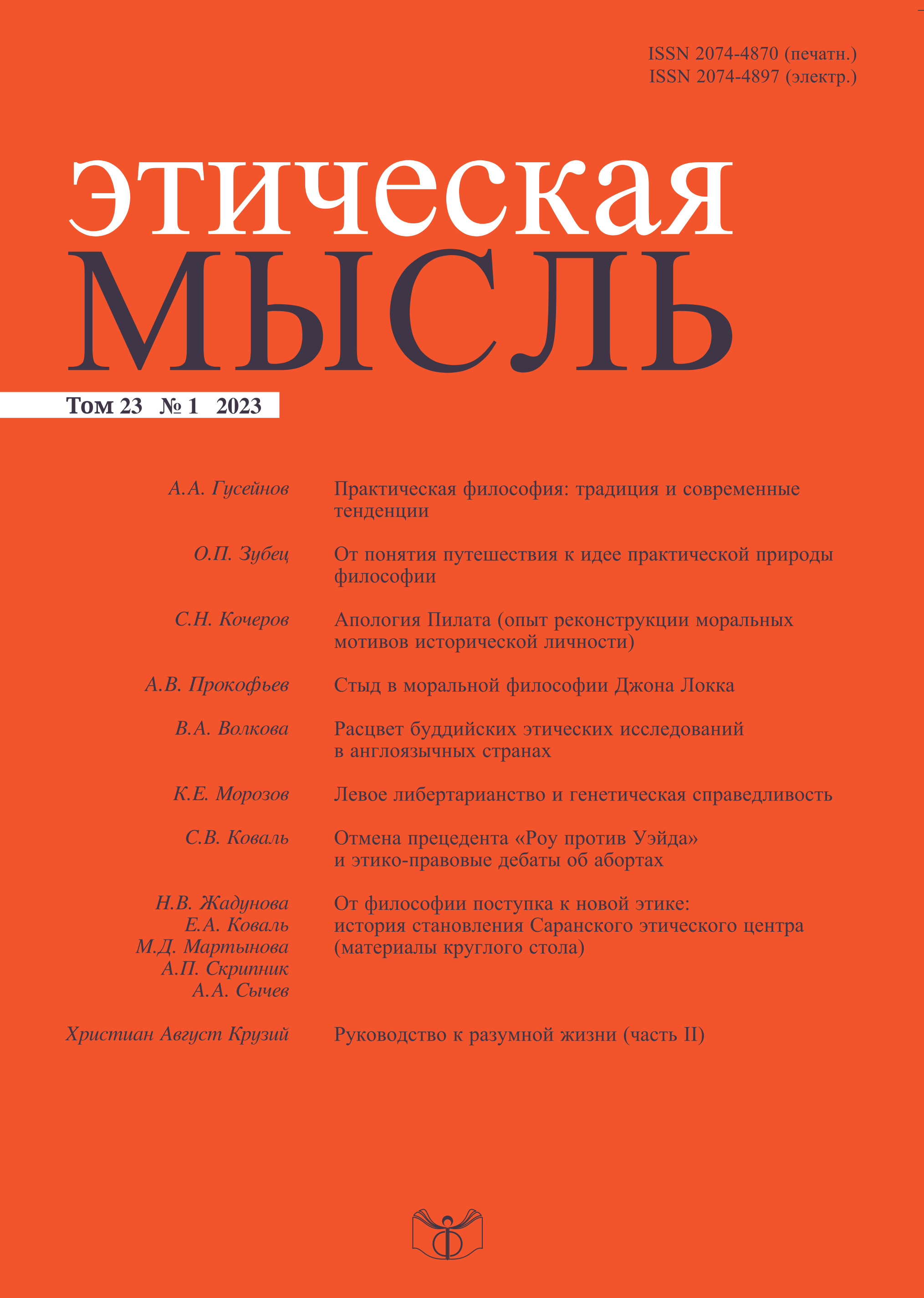Practical Philosophy: Tradition and Contemporary Trends
DOI:
https://doi.org/10.21146/2074-4870-2023-23-1-5-26Abstract
The paper is devoted to a general historical overview and state-of-the art of the question of what is practical philosophy and what is its place in the subject field of philosophy. The author takes as the starting point and basis for analysis the ancient view, according to which philosophy is divided into logic, physics and ethics. He demonstrates that this architectonics being fundamental is immutable and that ethics within it coincides with the practical part. Practical philosophy has undergone an evolution, the key milestones of which are a) the transition from the religious philosophy of the Middle Ages to the scientific philosophy of the New Age, b) the Kantian understanding of practical reason as pure reason (reason as such), c) the Marxian understanding of being as practice, d) the appearance of various forms of applied ethics and practical applications of philosophy in general. In the author’s opinion, it can be adequately understood only from the perspective of a holistic view of man as a unity of a living, rational, and simultaneously social (collective) being. The general idea of the article can be expressed as follows: practical philosophy coincides with moral philosophy to the extent that philosophy itself is a practice and acts as a life project, setting the most general direction of human conscious activity.









